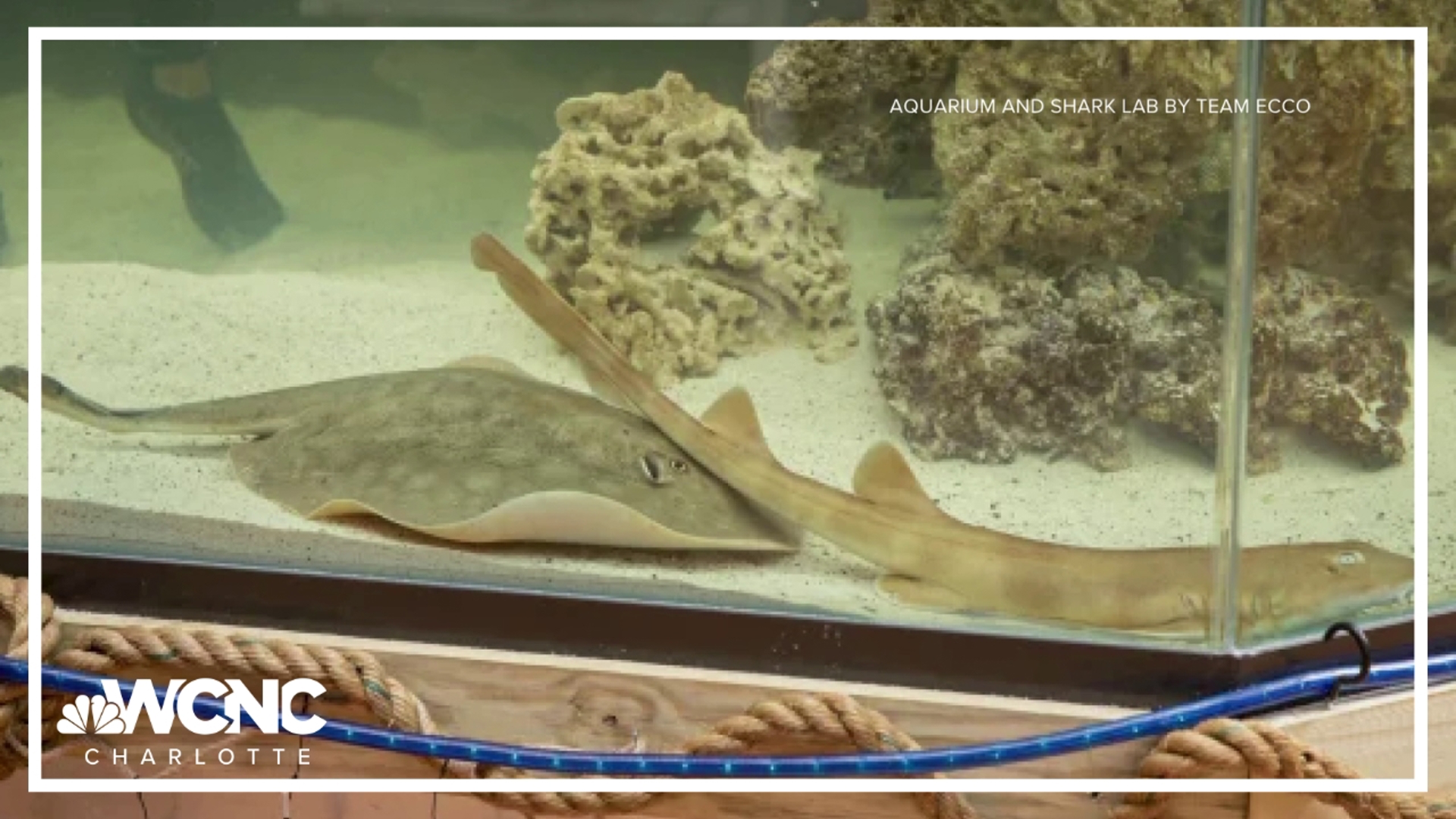HENDERSONVILLE, N.C. — A story that blew up online in February has taken a sad twist.
A pregnant stingray at the Aquarium and Shark Lab in Hendersonville, North Carolina, raised eyebrows when it was announced, not because a pregnancy is rare in a stingray, but because the pregnancy happened in a tank with no other stingrays.
People online started to speculating whether Charlotte the stingray could have mated with two young male sharks that were added to the tank back in July. WCNC Charlotte even VERIFIED whether that was possible or probable.
But on Thursday, the lab shared a tragic update on its social media channels.
After researching and testing Charlotte, the lab determined the stingray "developed a rare reproductive disease that has negatively impacted her reproductive system."
"Our priority is to focus on Charlotte’s health and wellbeing," the lab wrote on Facebook. "We will work with, and be guided by, veterinarians and specialists to better understand this disease and the treatment options for Charlotte. While the research of this disease is limited, we hope that Charlotte’s case and medical treatment will positively contribute to science and be of benefit to other rays in the future."
The lab didn't share what the disease was, and it's unclear at this time whether Charlotte is still pregnant, however it's important to note the average pregnancy in a stingray is typically 3 to 4 months long. Team ECCO had previously qualified that timing saying there isn't data for parthenogenetic pregnancies. A parthenogenetic pregnancy is a reproductive strategy that involves the development of a female baby stingray, rarely a male, without fertilization.
WCNC Charlotte To Go is a daily news and weather podcast you can listen to so you can start your day with the team at WCNC Charlotte.
SUBSCRIBE: Apple Podcasts || Spotify || Pandora || TuneIn || Google Podcasts || iHeart
All of WCNC Charlotte's podcasts are free and available for both streaming and download. You can listen now on Android, iPhone, Amazon, and other internet-connected devices. Join us from North Carolina, South Carolina, or on the go anywhere.

